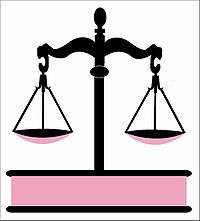Istiqlal Party
Istiqlal Party | |
|---|---|
 | |
| General Secretary | Hamid Chabat |
| Founder | Ahmed Balafrej |
| Founded | April 1937[1] |
| Headquarters | 4, rue Ibn Toumert, Rabat |
| Newspaper |
Al Alam (Arab) L'Opinion (French) |
| Ideology |
Moroccan nationalism Islamic conservatism[2] Conservatism |
| Political position | Centre-right |
| European affiliation | Alliance of Conservatives and Reformists in Europe (regional partner) |
| International affiliation |
International Democrat Union, Centrist Democrat International |
| House of Representatives |
46 / 395 |
| Website | |
|
partidelistiqlal | |
The Istiqlal or Independence Party (Arabic: حزب الإستقلال Ḥizb Al-Istiqlāl, French: Parti de l'Istiqlal) is a political party in Morocco. It is a conservative and monarchist party and a member of the Centrist Democrat International and International Democrat Union. Since 2013 the official opposition, Istiqlal previously headed a coalition government under Abbas El Fassi from 19 September 2007 – 29 November 2011.
History and profile
The party was founded in April 1937[3] as the National Party for Istiqlal, and became the Istiqlal Party the 10th December 1943.[4][5] Istiqlal held strongly nationalist views and was the main political force struggling for the independence of Morocco. The party was often critical of the ruling monarchy, after being instrumental in gaining independence from French colonialism. Independence was achieved in 1956, and the party then moved into opposition against the monarchy, which had asserted itself as the country's main political actor. Together with the leftist National Union of Popular Forces (UNFP), which split from Istiqlal in 1959, and later the Socialist Union of Popular Forces (USFP), the Istiqlal would form the backbone of the opposition to King Hassan II in the years to come. The Istiqlal party has taken part in many coalition governments from the late 1970s until the mid-1980s. In 1998, together with the USFP inside the Koutla and other smaller parties, the Istiqlal formed the Alternance, the first political experience in the Arab World where the opposition assumed power through the ballots.
For the party's leader Allal El Fassi, a proponent of "Greater Morocco", Morocco's independence would not be complete without the liberation of all the territories that once were part of Morocco.
In January 2006, Istiqlal criticized Spanish Prime Minister José Luis Rodríguez Zapatero's visit to the Spanish cities of Ceuta and Melilla on the north African coast, reflecting its nationalist heritage.
Istiqlal won 52 out of 325 seats in the parliamentary election held on 7 September 2007, more than any other party,[6] and subsequently the party's leader, Abbas El Fassi, was named Prime Minister by King Mohammed VI on 19 September 2007.[6][7]
The party won 60 out of 325 seats in the parliamentary election held in November 2011, being the second party in the parliament.[8]
Abbas El Fassi resigned as Prime Minister 29 November 2011, and resigned as Secretary-General of Istiqlal on 23 September 2012, following Justice and Development Party victory in 2011 elections.
In September 2012, Hamid Chabat was elected secretary-general of the party succeeding Abbas El Fassi.
In 2016, Istiqlal won 46 seats in parliamentary elections, a loss of 14 seats. The party rejoined the opposition.
Istiqlal is a member of the Centrist Democrat International and International Democrat Union, and an associate member of the Alliance of European Conservatives and Reformists.
Electoral performance
| Year | Number of votes | Percentage of votes | Seats in the House of Representatives |
Position in Parliament |
|---|---|---|---|---|
| 1963 | |
|
41 / 144 |
|
| 1970 | |
|
8 / 240 |
|
| 1977 | |
|
51 / 264 |
Opposition |
| 1984 | |
|
40 / 301 |
Opposition |
| 1993 | |
|
52 / 333 |
Opposition |
| 1997 | |
|
32 / 325 |
Part of the government |
| 2002 | |
|
48 / 325 |
Part of the government |
| 2007 | |
|
52 / 325 |
Leading the government under Abbas El Fassi |
| 2011 | |
|
60 / 395 |
Part of the government until October 2013 |
| 2016 | |
|
46 / 395 |
Opposition |
References
- ↑ https://books.google.co.ma/books?id=6XMBAwAAQBAJ&pg=PA607&dq=istiqlal+party+Morocco+1937&hl=en&sa=X&redir_esc=y#v=onepage&q=istiqlal%20party%20Morocco%201937&f=false
- ↑ Gema Martin-Muñoz (2000), "Political Reform and Social Change in the Maghreb", The Barcelona Process: Building a Euro-Mediterranean Regional Community, Frank Cass, p. 103
- ↑ https://books.google.co.ma/books?id=6XMBAwAAQBAJ&pg=PA607&dq=istiqlal+party+Morocco+1937&hl=en&sa=X&redir_esc=y#v=onepage&q=istiqlal%20party%20Morocco%201937&f=false
- ↑ "Moroccan human rights groups" (PDF). Amnesty International. 1991. Retrieved 10 October 2014.
- ↑ "Moroccan Political Parties". Riad Reviews. Retrieved 10 October 2014.
- 1 2 "Morocco's king names new PM", Xinhua, 20 September 2007.
- ↑ "El Fassi named Moroccan prime minister", Associated Press (Jerusalem Post), 20 September 2007.
- ↑ "Morocco". European Forum. Retrieved 10 October 2014.
External links
| Wikimedia Commons has media related to Istiqlal Party. |